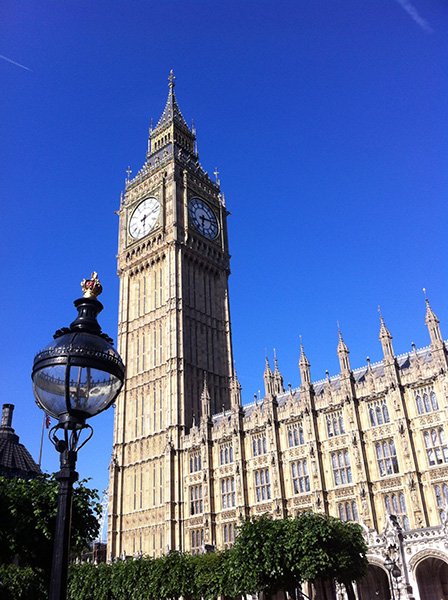Positive steps have been taken to improve safety and health in fashion industry supply chains but they must now be built on, a debate in the House of Lords heard.
 Leaders from the worlds of fashion, politics and occupational safety and health joined forces to examine what has been done to safeguard workers in ready-made garment factories since the Rana Plaza tragedy in April 2013.
Leaders from the worlds of fashion, politics and occupational safety and health joined forces to examine what has been done to safeguard workers in ready-made garment factories since the Rana Plaza tragedy in April 2013.
The panel debate looked at the initiatives that have been set up and discussed what more can be done, particularly focusing on having greater transparency in the industry and workers being able to raise safety concerns without fear of reprisals from their employers.
IOSH joined together with Fashion Revolution and parliamentarians to hold the roundtable discussion.
Speaking at the event, called Ethical Fashion 2020: A New Vision for Transparency?, IOSH CEO Jan Chmiel said the fashion industry is “among the most labour-intensive” sectors and it is vital that those employed in it are kept away from harm.
He said: “We need to make sure that this work is good work and that workers return home safe and healthy at the end of the working day.
“Transparency matters because it can drive improved workplace standards. It can also increase recognition of good health and safety performance. And importantly, it can help ensure more people view health and safety as an investment, not a cost – one that saves lives, supports business and sustains communities.
“Whereas, a lack of transparency can do the reverse. Crucially, it can mean that firms don’t know the factories that are supplying them, so they can’t actively manage their risks – potentially leading to tragedy, disaster and business failure.”
The Rana Plaza factory collapse in Bangladesh killed 1,100 people and left many more with life-changing injuries. It focused worldwide attention on the plight of workers in such factories, many of which are in the developing world, and led to a number of initiatives designed to protect them and avoid similar tragedies.
These included the Bangladesh Accord for Fire and Building Safety, a legally-binding agreement that requires signatories and their contract factory managers to address serious risks affecting two million workers in their factories. Over 200 apparel brands, retailers and importers have signed the accord, demonstrating a keenness to protect workers.
As well as the accord, with some unsafe factories being fully or partially closed, the disaster has also led to calls for improved regulations and enforcement while IOSH has funded and accredited free fire safety training in several developing countries.
The accord’s executive director Rob Wayss was a member of the panel and said that its signatories were placing requirements on their suppliers, which are “unprecedented”.
He added that even though there had been a positive response to the accord, much more needs to be done, including increasing the pace of remediation works in factories and ensuring workers are able to raise safety concerns without fear of reprisal.
Mr Wayss said: “If other workers see that raising safety concerns leads to hassle, they won’t express worries themselves. Transparency is the key to progress and the way the accord works. We publish inspection and disclose non-compliance.”
Meanwhile, Baroness Young of Hornsey represented the All-Party Parliamentary Group on Ethics and Sustainability in Fashion. She said tools need to be found to better inform consumers and that governments need to look at legislation they have at their disposal to increase the rate of progress.
Also represented were the British Fashion Council, the Ethical Trading Initiative and the Maquiladora Health and Safety Support Network.
Peter McAllister, executive director of the Ethical Trading Initiative, added that the full implementation of United Nations guiding principles would “help support progress in transparency” within the industry.
Fashion Revolution founder Carry Somers said it is vital that fashion industry supply chains are fully connected.
She said: “Transparency may be a difficult journey for the fashion industry, but it is an essential journey if we are to see real improvements in the myriad of issues affecting its supply chain.”
Fire Safety in 2023 eBook
SHP's sister site, IFSEC Insider has released its annual Fire Safety Report for 2023, keeping you up to date with the biggest news and prosecution stories from around the industry.
Chapters include important updates such as the Fire Safety (England) Regulations 2022 and an overview of the new British Standard for the digital management of fire safety information.
Plus, explore the growing risks of lithium-ion battery fires and hear from experts in disability evacuation and social housing.


